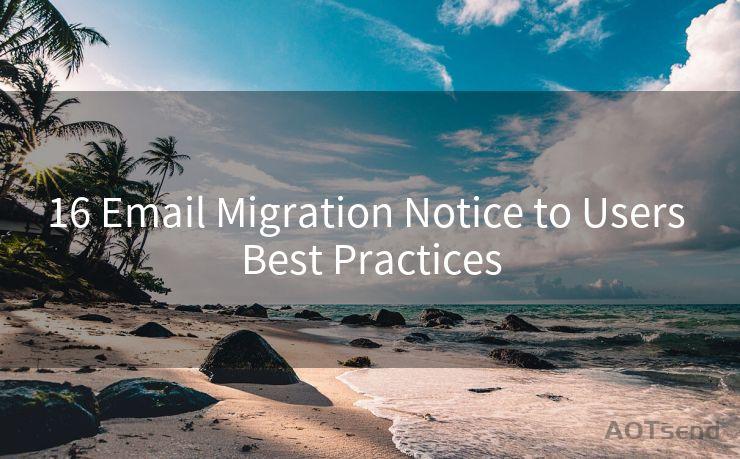16 Email Migration Notice to Users Best Practices




When it comes to email migration, communication is key. Informing your users about the upcoming changes in a clear and timely manner can significantly reduce confusion and frustration. Here are 16 best practices for crafting an effective email migration notice to your users.
1. Start With a Clear Subject Line
The subject line of your email should be direct and informative. For example, "Important Notice: Upcoming Email Migration" or "Email System Migration: What You Need to Know".
2. Introduce the Migration
Begin your email by briefly explaining the reason for the migration. Whether it's for improved security, enhanced features, or scalability, let your users know why this change is necessary.
3. Provide a Timeline
Give specific dates for the migration process, including when it will start, key milestones, and the expected completion date. This helps users plan ahead.
4. Detail Potential Impact
Be transparent about any potential service disruptions or temporary limitations users may experience during the migration.
5. Offer Support Resources
Provide links to FAQs, support forums, or contact information for users who may encounter issues or have questions.
6. Emphasize Security
Reassure users that security is a top priority during the migration. Detail any steps taken to ensure data privacy and integrity.
7. Encourage Feedback
Invite users to provide feedback on the migration process. This not only helps with troubleshooting but also makes users feel valued.
8. Test the Migration Process
Conduct a test migration with a small group of users and gather their feedback. Use this information to refine your process and communication strategy.
9. Keep Communications Consistent
Use the same tone, language, and design elements across all migration-related communications to maintain a consistent message.
🔔🔔🔔
【AOTsend Email API】:AOTsend is a Managed Email Service for sending transactional emails. Support Email Types: reminders, authentication, confirmations, notifications, verification codes, invoices, password resets, account activations, billing statements, two-factor authentication (2FA), and one-time passwords (OTP) emails, etc. $0.28 per 1000 Emails. 99% Delivery, 98% Inbox Rate.
You might be interested in:
Why did we start the AOTsend project, Brand Story?
What is a Managed Email API, How it Works?
Best 25+ Email Marketing Platforms (Authority,Keywords&Traffic Comparison)
Best 24+ Email Marketing Service (Price, Pros&Cons Comparison)
Email APIs vs SMTP: How they Works, Any Difference?
10. Prepare for the Unexpected
Have a contingency plan in place to address any unexpected issues that may arise during the migration.

11. Update Regularly
Send periodic updates during the migration process to keep users informed of progress and any changes to the timeline.
12. Make It Easy to Understand
Avoid technical jargon and use plain language to ensure all users can understand the information.
13. Provide a Way Back
If possible, offer a way for users to opt-out or delay the migration if they encounter significant issues.
14. Thank Your Users
Express gratitude to your users for their patience and understanding during the migration process.
15. Follow Up After the Migration
Once the migration is complete, send a follow-up email thanking users for their cooperation and providing any necessary post-migration instructions.
16. Learn From the Experience
Gather feedback from users after the migration to improve future processes.
By following these best practices, you can ensure a smoother email migration process for both your team and your users. Communication is essential, and by keeping your users informed and prepared, you can minimize confusion and maximize satisfaction.




Scan the QR code to access on your mobile device.
Copyright notice: This article is published by AotSend. Reproduction requires attribution.
Article Link:https://www.mailwot.com/p6269.html



